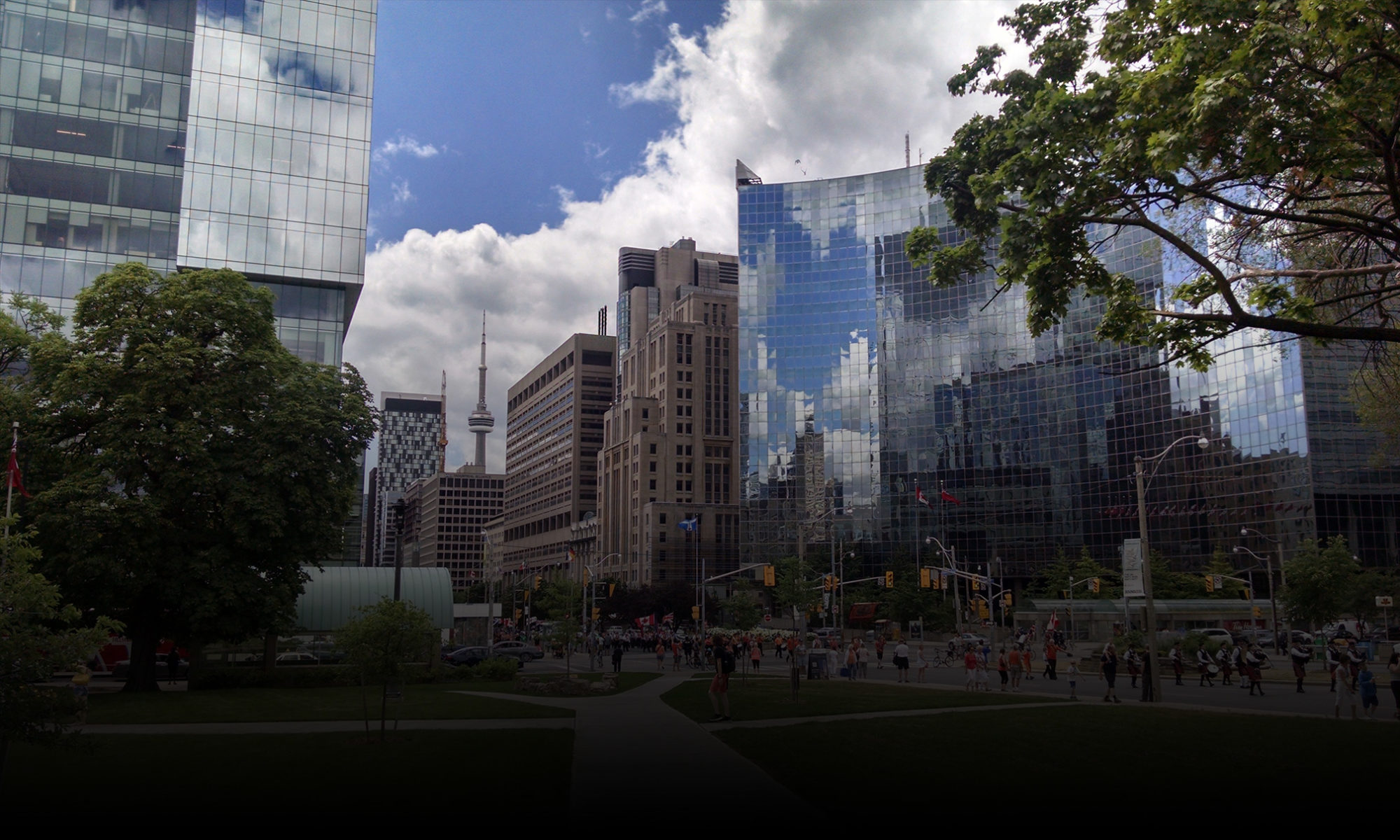 Ignoring Climate Change and Customer Experience can result in diminished human potential and destroyed companies, brands, property, and lives. The good news is that amid deniers of Climate Change or those that don’t think the Customer Experience matters, there are many people who do care and are actively engaging others to care, too.
Ignoring Climate Change and Customer Experience can result in diminished human potential and destroyed companies, brands, property, and lives. The good news is that amid deniers of Climate Change or those that don’t think the Customer Experience matters, there are many people who do care and are actively engaging others to care, too.
10 ways in which Climate Change and Customer Experience are alike:
- Detection Informs Design. For Climate Change and Customer Experience we can detect changes that can inform smarter design; smarter design of products, services, spaces, and organizations. We can design and deliver better Customer Experiences and we can design more thoughtful organizations, institutions, and policies to create a more sustainable and inclusive future for all. We can even design systems to protect people from the effects of Climate Change. Of course being informed is one thing; we still have to decide to actually do something differently if we expect to have different outcomes. Progress is pesky that way; we have to invest in it. Rarely does it advance on its own.
- Pioneers Face Resistance. There are conferences and summits that deal directly with Climate Change and Customer Experience. People attend these conference and summits; gain ideas for improvements, then return to their daily lives to face resistance, opposition, and even misdirection. These pioneers of Customer Experience and of Climate Change push headlong against social, cultural, and political opponents who would rather keep things as they are. Some of these pioneers (entrepreneurs pursuing the seemingly impossible) persevere and we eventually come to know their innovations and perhaps even their names.
- Little Things Together Have a Big Impact. Customer Experience and Climate Change involve many different factors that when working together make a big difference. With Customer Experience, all of the interactions across touchpoints over time in customers’ journeys work to ensure that a brand has staying power; those interactions can also spell disaster for a brand that cumulatively leaves a poor brand aftertaste in the minds of prospective and current customers. Similarly, recycling, industrial composting, production practices, and individual purchase and consumption habits, etc., don’t look like much in isolation. But, taken together they make a big impact on social, environmental, and economic systems. Things are more connected than we often realize.
- Policy Must Connect With Humans. Climate Change and Customer Experience solutions require holistic solutions that benefit when top-down policy direction is informed by bottom-up data and actions. Returns processing, online purchase behavior, communications, etc., are all better solutions for customers when the top and bottom meet somewhere in the middle, at the customer’s reality. When it comes to climate change, proposed policies and agreements that factor in the real world experiences of displaced (or soon to be) climate refugees, are more humane, meaningful, and long-lasting.
- Meaningful Metrics Needed. Customer Experience and Climate Change both suffer at the hands of operators who internalize profits while externalizing costs to customers, society, and sometimes to workers. Landfills are filled with junk products that are designed to be profitable so long as customers accept the notion they are buying disposable, nonrenewable, non-repairable, and many times nonreturnable products. People that may be marginalized in the process are invisible to most consumers. Save for the consumer that looks for Cradle to Cradle certification, Fair Trade certification, Organic, or other inherently sustainable labels, most consumers are in the dark; They serve as unwitting pawns that contribute to harming the earth and its inhabitants while the puppet masters that exploit the seemingly limitless earth’s resources and marginalize people do extremely well for themselves and their allies. Metrics that go beyond profits and include social and environmental factors are increasingly important to global citizens that share a common planet.
- Leadership Must Adapt. Both Customer Experience and Climate Change create victims while at the same time producing those who do extremely well under the “old system,” at least until the day they don’t. Imagine building your empire based on vast fossil fuel reserves or a particular product or technology only to find that over time it has become irrelevant as the world moved on. I wouldn’t want to be manufacturing typewriters, selling palm oil that contributes to deforestation, or base my entire country’s economy on fossil fuel production. It’s important to pay attention to and respond to the changing mood of people. Organizations and governments would do well to build more responsive organizations that balance the needs of many stakeholders. Use The Promise Delivery System of Chapter 8 in The Experience Design Blueprint to build a more responsive organization. Any organization can operationalize a promise delivery system using whatever technology and personnel it has at its disposal.
- Myriad Factors Are Involved. Customer service is to Customer Experience as habitat protection is to Climate Change. Either one is but one factor in a compilation of interrelated issues – necessary, but insufficient. As described in The Experience Design Blueprint, an experience is a contextual interaction between people, objects, services, and spaces. Customer service is only a small, albeit important, component of the overall Customer Experience. Likewise, there are many factors involved in Climate Change including the water cycle, the natural environment and built environment, agricultural practices, trade policy, economic empowerment, production practices, individual consumption patterns, etc. Not every factor can be controlled by any individual or organization. But, that doesn’t absolve any individual or organization from its own inaction.
- Opponents Think It Too Expensive. Opponents may say investing in progress whether it is Customer Experience or Climate Change is too expensive. It’s true that short-term indulgent thinking might satisfy our immediate hunger, but it’s a satisfaction like junk food satisfies. It is filling for the moment, but it lacks nutritional value and substance. And in the long run, it doesn’t work for your waistline or your health. The VW Emission Cheating Scandal may have looked like a good idea in the short run but in the long run, it’s harmful to the environment, owners of vehicles, owners of the company stock, and ultimately to the affected brands. Gimmicks to prop up earnings in the short run are too often heralded while long-term investments in employee training, organizational performance, and customer empowerment are deemed to be unwarranted expenditures.
- Lack of Systems Thinking. Customer Experience or Climate Change? That is somebody else’s problem to solve (or the worry of another agency or department). There is a lack of systems thinking, holistic solutions are lacking, and conversations are too small. We confuse causation with correlation. Our biases, ideologies, and patterns of behavior get in the way; so do our means of livelihood. “My tailpipe emission didn’t cause that. Leaving the light on doesn’t matter, my extra trip, extra purchase, my upgrade, my tossing that compostable product in the trash. What difference does it really make?” Often times, in organizations, we face back office and top office decisions that undermine the remarkable actions of front-line personnel that actually strive to do the right thing for customers and the organization.
- What do you think? I’m sure you have ideas on how Climate Change and Customer Experience are alike, face the same challenges, are improving, etc. I’ve closed comments on this post but please do share your ideas with me and others on social media.
Things Are Connected
Things are more connected than they first appear to be. Delivering great Customer Experiences and having sustainable production and consumption patterns that don’t contribute to anthropogenic (human-caused) Climate Change are both issues that require we confront our common reality, engage in new thinking, new conversations, and that collectively we invest in progress. Good global citizens are increasingly paying attention to matters of Customer Experience and Climate Change. Brands (including governments) that embrace great customer experiences and that live up to their changing duties as the climate continues to wreak havoc on people and property, will do better in the future than deniers or bad actors that stick to outdated modes of thinking.
The Future is Better than the Past
To escape the present and explore a brighter future where we all live more meaningful lives, governments invest in people and sustainable progress, and technology serves humans read L’ impossi preneurs: A Hopeful Journey Through Tomorrow.
about the author
 Gregory Olson’s latest book is L’ impossi preneurs: A Hopeful Journey Through Tomorrow, a light-hearted and deadly serious book about a brighter future where we live more meaningful lives, governments invest in people and sustainable progress, and technology serves humans. This book challenges each of us to think differently, spark our own conversations, and play a role in nudging the world forward to create a better future for all. Find it at Amazon, CreateSpace e-Store,Barnes & Noble, Bokus, or order it from your local bookstore.
Gregory Olson’s latest book is L’ impossi preneurs: A Hopeful Journey Through Tomorrow, a light-hearted and deadly serious book about a brighter future where we live more meaningful lives, governments invest in people and sustainable progress, and technology serves humans. This book challenges each of us to think differently, spark our own conversations, and play a role in nudging the world forward to create a better future for all. Find it at Amazon, CreateSpace e-Store,Barnes & Noble, Bokus, or order it from your local bookstore.
 Greg also authored The Experience Design Blueprint, a book about designing better experiences and then making them come true. Exercises and mental models in the book will build your confidence and competence in envisioning better possibilities and then making them come true, whether you are working alone or alongside a team. Chapters in the book that especially pertain to this article include:
Greg also authored The Experience Design Blueprint, a book about designing better experiences and then making them come true. Exercises and mental models in the book will build your confidence and competence in envisioning better possibilities and then making them come true, whether you are working alone or alongside a team. Chapters in the book that especially pertain to this article include:
- Chapter 6: Remarkable, Unbroken and Generous Design
- Chapter 8: The Promise Delivery System
- Chapter 11: Barriers to Innovation and Overcoming the Wall
- Chapter 12: The Three Psychological Zones
- Chapter 13: Taking Flight
 Gregory Olson founded strategy and design firm Delightability, LLC. with the belief that if you delight customers then success will follow. He believes that we all have the potential to do better, as individuals, organizations, and communities, but sometimes we need a little help. Gregory also serves as a volunteer board member for Oikocredit Northwest, a support association for social and impact investor, Oikocredit International.
Gregory Olson founded strategy and design firm Delightability, LLC. with the belief that if you delight customers then success will follow. He believes that we all have the potential to do better, as individuals, organizations, and communities, but sometimes we need a little help. Gregory also serves as a volunteer board member for Oikocredit Northwest, a support association for social and impact investor, Oikocredit International.

